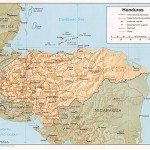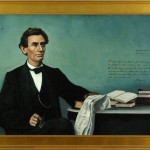Bertha Oliva: The Search for Truth and Justice in Honduras
 Marquette University Law School was very fortunate to have several international law events last week. The third of three international law speakers was Bertha Oliva, who spoke to an audience of law students and Marquette University undergraduate students on Wednesday, October 6, 2010.
Marquette University Law School was very fortunate to have several international law events last week. The third of three international law speakers was Bertha Oliva, who spoke to an audience of law students and Marquette University undergraduate students on Wednesday, October 6, 2010.
Bertha Oliva is the General Coordinator of the Committee of Families of the Detained and Disappeared in Honduras (COFADEH). COFADEH is a Honduran non-governmental organization committed to fighting human rights violations. Ms. Oliva, along with others, founded COFADEH in 1982 to seek justice for the individuals who were detained, disappeared, and killed by Honduran death squads. COFADEH now investigates and documents human rights violations, represents victims of human rights violations, and educates the public on human rights issues.
Ms. Oliva spoke about the ongoing human rights violations in Honduras, particularly the violations that occurred (and continue to occur) after the coup d’etat last June. She described daily violence and threats that she, members of COFADEH, and other members of the resistance movement face because they oppose the post-coup government. Specifically, Ms. Oliva told about the rape of women, forced kidnappings, and the murder of resistance movement members that have become commonplace in Honduras. Additionally, resistance movement groups, including COFADEH, have been the victims of tear gas raids and attacks.


